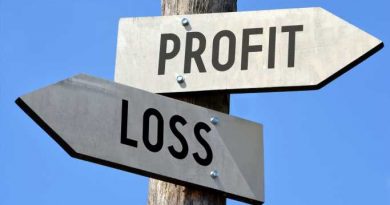Analysis: U.S. IPO market faces first big test of 2021
(Reuters) – At least eight businesses are set to price initial public offerings (IPOs) in New York in the next three days, seeking to raise a total of nearly $5 billion in what could be the biggest week for new listings in more than five years.
The companies are seeking to capitalize on what has been the strongest IPO market in two decades. Some $83 billion was raised across 203 IPOs in 2020, excluding listings of special purpose acquisition vehicles (SPACs), on U.S. stock exchanges, according to Refinitiv data.
This was the most since 2000, as firms such as home-rental company Airbnb Inc, food delivery startup DoorDash Inc and data warehouse firm Snowflake Inc capitalized on the stock market recovery in the aftermath of the COVID-19 pandemic.
Financial technology startup Affirm Holdings Inc, mobile gaming firm Playtika Holding Corp, pet retailer Petco Health and online fashion marketplace Poshmark Inc are among those aiming to price IPOs this week.
Other high-profile listings expected in the coming months include supermarket chain Winn-Dixie operator Southeastern Grocers Inc, gaming site Roblox Corp and grocery delivery app Instacart. “It’s almost like we didn’t miss a beat here after a record 2020. This week is the start of what we expect to be a very busy January,” said Eddie Molloy, co-head of equity capital markets in the Americas at Morgan Stanley.
IPO hopefuls have had a solid start in 2021. Biotechnology companies Cullinan Oncology LLC and Gracell Biotechnologies, priced IPOs last week higher than targeted, their shares closing up on their first day of trading. On Monday, Affirm increased the target selling price for its shares because of the strong investor demand.
With the stock market posting new all-time highs, concerns are rising about listings overheating. Companies priced their U.S. IPOs at a median price-to-sales ratio of 38.5 in 2020, the highest since the dotcom era of 2000, according to data complied by Jay Ritter, an IPO expert and professor at the University of Florida.
Some investment bankers said it was hard to predict if there is an IPO bubble, noting that low interest rates have made investors more willing to bet on riskier stocks.
“We are very much in a risk-on environment and this is when IPOs shine. We don’t know how long this continues, but while it does companies will keep coming to market,” said David Hermer, Credit Suisse Group AG’s head of global equity and debt capital markets.
DIRECT LISTINGS, SPACS
Dealmakers expect more companies to go public through a direct listing instead of a traditional IPO this year, after four companies, including data analytics firm Palantir Technologies and workplace app Asana Inc, picked this route last year, up from two in 2019.
Direct listings let companies sell shares directly to investors without paying for underwriters. Unlike IPOs, they do not allow companies to raise capital, though the U.S. Securities and Exchange Commission last month greenlighted a process by the New York Stock Exchange that enables companies to raise money in a direct listing. This process has yet to be tested.
“The idea that we see another round of direct listings this year that doubles the four we have had so far again is inside the scope of possibility,” said Andrew Wetenhall, co-head of equity capital markets in the Americas at Morgan Stanley.
SPACs, also known as blank-check acquisition companies, kept raising funds from investors at a strong pace after bringing in a record $83.4 billion through IPOs last year, according to SPAC Research.
Their popularity was fueled by the success of some SPAC mergers in late 2019 and early 2020, such as space tourism company Virgin Galactic Holdings, sports betting platform DraftKings Inc and battery-maker Quantumscape Corp.
In the first week of 2021, a record 28 SPACs raised over $6 billion to invest in private companies to take public, according to IPO research firm Renaissance Capital.
“The SPAC boom will have a greater impact than in 2021 than last year,” said Matthew Kennedy, a senior strategist at Renaissance Capital.
“They’ve raised a lot money in the past months and we start the year with hundreds of blank checks looking to take companies public,” Kennedy added.
Source: Read Full Article

